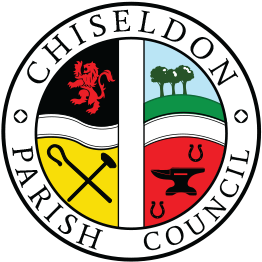The Government has today announced which of three COVID-19 alert tiers Swindon has been allocated to.
Like most areas in the South West region, Swindon has been allocated to the ‘High Alert’ Tier 2 level. This applies to areas with a higher or rapidly rising level of infections, where some additional restrictions need to be in place.
You can read here what that means for everyone living and working in Swindon.
These restrictions take effect, replacing the current national restrictions, from 12:01 on Wednesday, 2 December.
The Government will review the current tier allocations by Wednesday, 16 December.
Read what informs Government decisions on which tiers areas are placed into.
Our Tier 2 ‘High Alert’ level status emphasises the care and vigilance we all need to show in the weeks ahead in the run-up to and over Christmas. These new restrictions do give us a greater degree of freedom than we have seen under national restrictions, but greater personal responsibility comes with that.
At a time when flu-related medical conditions already create a winter pressure on our local health services, it’s vital we minimise the extra burden caused by COVID-19. By helping to stop the spread in the weeks ahead, we can help free up hospital beds and capacity to provide the vital medical care and treatment that we all depend on.
Swindon: it’s up to all of us in the coming weeks to protect the NHS.
What you can and can’t do in Tier 2
Meeting friends and family
- you must not socialise with anyone you do not live with or who is not in your support bubble in any indoor setting, whether at home or in a public place
- you must not socialise in a group of more than six people outside, including in a garden or a public space – this is called the ‘rule of 6’
Businesses and venues
- businesses and venues can continue to operate, in a COVID-Secure manner, other than those which remain closed by law, such as nightclubs
- pubs and bars must close, unless operating as restaurants. Hospitality venues can only serve alcohol with substantial meals
- hospitality businesses selling food or drink for consumption on their premises are required to:
- provide table service only, in premises which sell alcohol
- close between 11pm and 5am (hospitality venues in airports, ports, transport services and motorway service areas are exempt)
- stop taking orders after 10pm
- hospitality businesses and venues selling food and drink for consumption off the premises can continue to do so after 10pm as long as this is through delivery service, click-and-collect or drive-through
- early closure (11pm) applies to casinos, cinemas, theatres, museums, bowling alleys, amusement arcades, funfairs, theme parks, adventure parks and activities, and bingo halls. Cinemas, theatres and concert halls can stay open beyond 11pm in order to conclude performances that start before 10pm
Attendance at events, weddings and funerals
- public attendance at outdoor and indoor events (performances and shows) is permitted, limited to whichever is lower: 50 per cent capacity, or either 2,000 people outdoors or 1,000 people indoors
- public attendance at spectator sport and business events can resume inside and outside, subject to social contact rules and limited to whichever is lower: 50 per cent capacity, or either 2,000 people outdoors or 1,000 people indoors
- places of worship remain open but you must not socialise with people from outside of your household or support bubble while you are indoors there, unless a legal exemption applies
- weddings and funerals can go ahead with restrictions on numbers of attendees – 15 people can attend wedding ceremonies and receptions, 30 people can attend funeral ceremonies, and 15 people can attend linked commemorative events such as wakes or stonesettings
- organised outdoor sport, physical activity and exercise classes can continue
- organised indoor sport, physical activity and exercise classes will only be permitted if it is possible for people to avoid mixing with people they do not live with (or share a support bubble with). There are exceptions for indoor disability sport, sport for educational purposes and supervised sport and physical activity for under-18s, which can take place with larger groups mixing
Travel guidance
- you can continue to travel to venues or amenities which are open, but should aim to reduce the number of journeys you make where possible
- if you live in a Tier 2 area, you must continue to follow Tier 2 rules when you travel to a Tier 1 area. Avoid travel to or overnight stays in Tier 3 areas other than where necessary, such as for work, education, youth services, to receive medical treatment, or because of caring responsibilities. You can travel through a Tier 3 area as part of a longer journey
- for international travel see the Foreign, Commonwealth and Development Office travel advice for your destination and the travel corridors list
